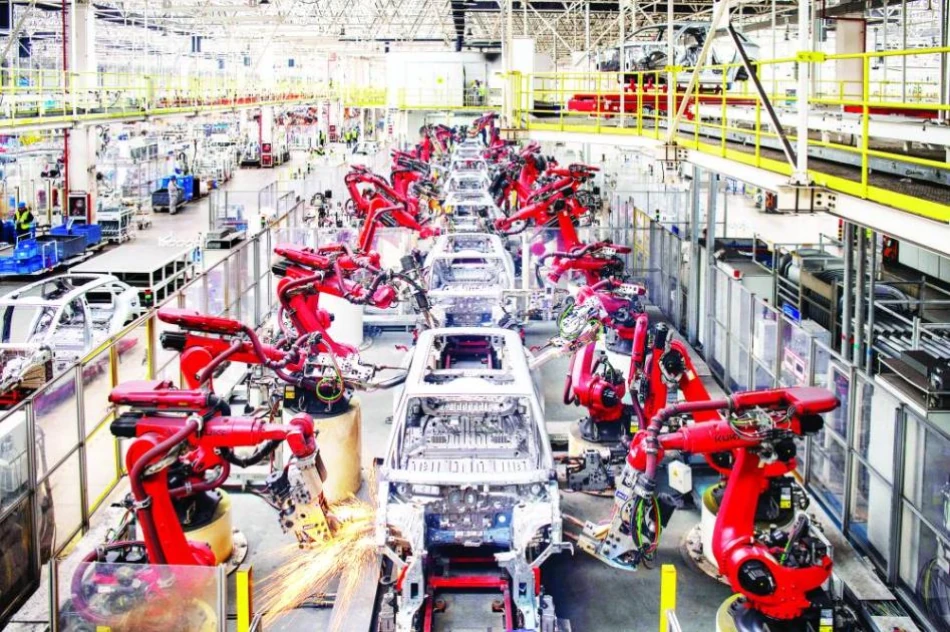
China's Auto Sales Decelerate in July: Insights for Industry Trends
China's Auto Sales Growth Stalls as Hybrid Demand Collapses and Price War Takes Its Toll
China's automotive market is showing clear signs of strain as sales growth decelerated sharply in July, driven by plummeting demand for hybrid vehicles and regulatory crackdowns on the destructive price wars that have plagued the world's largest car market. The slowdown marks a critical inflection point for an industry that has been the global engine of electric vehicle adoption.
Sharp Deceleration Signals Market Maturation
According to data from the China Passenger Car Association, total vehicle sales rose just 6.9% year-over-year to 1.85 million units in July—a dramatic drop from June's robust 18.6% growth rate. This represents the kind of volatility that suggests China's auto market may be entering a more mature phase after years of explosive growth.
The deceleration is particularly striking given that China has been the primary driver of global automotive electrification. The country's new energy vehicle (NEV) segment, which includes both fully electric and plug-in hybrid models, saw growth slow to 12% from June's 29.7% pace, though it continued to outperform gasoline-powered vehicles for the fifth consecutive month.
The Hybrid Vehicle Collapse
The most telling indicator of shifting consumer preferences is the 3.6% year-over-year decline in hybrid and extended-range vehicle sales. This collapse reflects a fundamental shift in the Chinese market as battery technology improvements and charging infrastructure expansion have alleviated range anxiety that previously drove consumers toward hybrid solutions.
Winners and Losers Emerge
This transition is creating clear market winners and losers. Pure-play electric vehicle manufacturers like Leap Motor, Xiaomi, and XPeng Motors capitalized on the trend with record July sales figures. Meanwhile, companies heavily invested in hybrid technology—including market leader BYD and Li Auto—face mounting pressure as their core product categories lose consumer appeal.
BYD's situation is particularly noteworthy. As Tesla's largest Chinese rival and the architect of the sector's aggressive pricing strategy, the company experienced its first production decline in 17 months during July. This suggests that even market leaders are not immune to the current downturn.
Regulatory Response to Price War Damage
Chinese regulators are increasingly intervening to address the price wars that have devastated industry profitability. These aggressive pricing strategies, while beneficial for consumers in the short term, have created unsustainable market conditions that threaten long-term innovation and investment.
The regulatory crackdown mirrors similar interventions in other sectors where Chinese authorities have stepped in to prevent destructive competition. However, the auto sector's complexity—involving both domestic champions and foreign competitors—makes intervention particularly challenging.
Global Implications and Market Outlook
China's automotive slowdown carries significant implications for global markets. As the world's largest auto market and electric vehicle production hub, Chinese demand patterns influence everything from lithium prices to semiconductor allocation. The shift away from hybrids toward pure electric vehicles also validates the strategic bets made by companies like Tesla while challenging traditional automakers still transitioning their portfolios.
For investors, the current market dynamics suggest a period of consolidation ahead. Companies with strong balance sheets and differentiated technology will likely emerge stronger, while those dependent on unsustainable pricing strategies or declining hybrid segments face difficult adjustments.
The July data indicates that China's auto market is evolving from a growth story to a mature, competitive landscape where technological differentiation and operational efficiency will determine long-term success. This maturation process, while painful for some participants, ultimately strengthens the foundation for sustainable industry development.
Most Viewed News

 Omar Rahman
Omar Rahman






